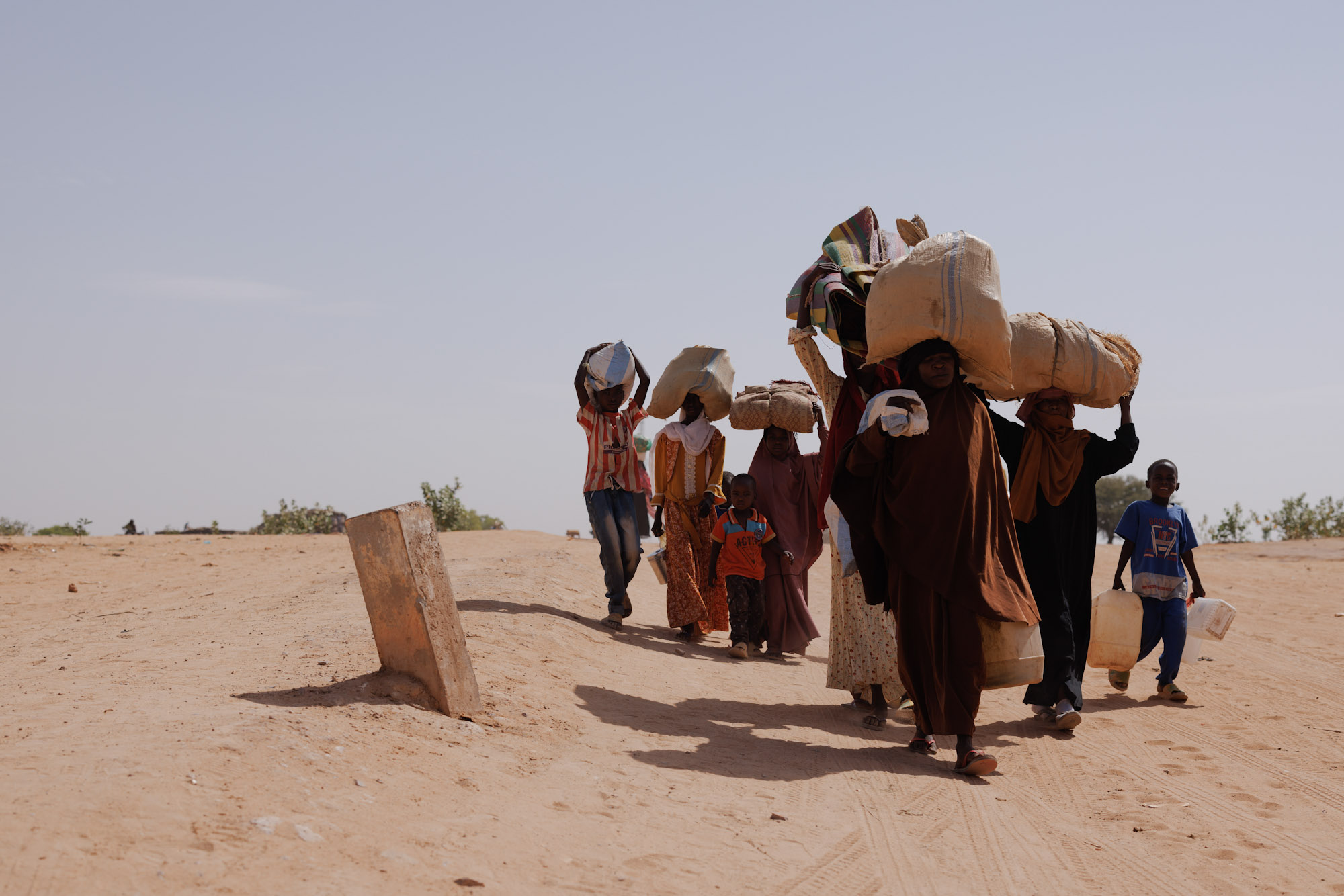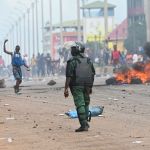
Echoes of Vertières: How Haiti’s Past Inspires Tod…
Every November 18, Haiti commemorates the Battle of Vertières, a pivotal conflict that ended over a century of French colonial…
Violent conflict and state fragility threaten global security. IRI works with partners to craft interventions that shore up faltering institutions and create the conditions for the peaceful resolution of conflict.

Violent conflict and state fragility threaten freedom and security worldwide. Unstable environments derail democratic progress, inhibit service delivery, and undermine trust between governments and their citizens. IRI works to mitigate violent conflict and help stabilize fragile states by supporting governments in seeking peaceful dispute resolution.
Fragility stems from a breakdown in trust between citizens and unresponsive state institutions. When citizens think their governance institutions are corrupt and unaccountable, conflict and extremism are more likely to result. IRI helps build legitimate, responsive governments and political parties, with the goal of building trust and easing tensions.
Using a data-driven approach, IRI addresses deficiencies in governance and democracy in countries at each phase of a conflict cycle, from fragile communities where conflict could erupt to post-conflict societies moving toward peace and stability. IRI uses “Do No Harm” and “Conflict Sensitivity” considerations across its programming to avoid unintentionally contributing to instability.
IRI’s work includes preventing and countering violent extremism, peacebuilding, improving security, and addressing forced displacement and migration. IRI’s programs have been validated by extensive conflict analyses and are based on approaches proven to work in similar situations.
IRI prevents violent extremism (VE) by addressing the structural drivers of radicalism. IRI’s approach relies on both quantitative and qualitative research guided by local experts. This work promotes a culture of democratic governance, seeks to reduce grievances, and improves community relations.
In its work on peacebuilding, IRI adapts its programs to a given conflict cycle, addressing the core democracy and governance issues that drive unrest, with an emphasis on building representative governance, bolstering civic engagement, and bridging the gap between elected officials and their citizens. Using its networks and expertise, IRI tackles the political basis of conflict and creates opportunities for nonviolent resolution. IRI’s engagement does not end when conflict ceases – the Institute helps build institutions resilient to shocks, providing a stable foundation for a democratic future. Insecurity caused by gang violence, illicit trafficking, and organized crime destroys the social fabric of communities and drives both domestic and transnational crime. IRI takes a localized approach by working to strengthen violence prevention by joining with government officials to boost civic and political opportunities for people susceptible to recruitment by violent gangs.
IRI uses analysis and data to inform in-country programming in each of these areas. This is outlined in the Conflict, Governance and Legitimacy Assessment Framework, which lays out the steps required for successful peacebuilding and stabilization programming. IRI’s Field Guide for DRG Programming in Fragile and Conflict Affected Contexts provides insights on how to tailor interventions in fragile and conflict-affected areas, based on rigorous evidence.
IRI works to prevent and counter violent extremism (P/CVE) through the four-pillar “Understand, Inform, Equip and Adapt” methodology described in the Institute’s Preventing Violent Extremism: A Technical Guide for Democracy, Human Rights, and Governance Implementers. IRI examines local contexts, identifying vulnerable populations and the leaders best situated to support anti-radicalization and resiliency efforts. Next, IRI builds on its civic and political networks to share data with those who can address issues of conflict or VE. IRI then develops, supports, and evaluates local P/CVE interventions, partnering with influential leaders.
IRI takes a whole of society approach to maintaining stability, preventing conflict, building institutions that can promote peace through transitions, and promoting community resilience. IRI’s approach in fragile and conflict-affected areas is to coordinate with legitimate actors and inform programming via a deep analysis of the situation. This is outlined in the Institute’s Conflict, Governance and Legitimacy Assessment Framework, which lays out the key steps required for successful peacebuilding and stabilization programming.
IRI’s Field Guide for DRG Programming in Fragile and Conflict Affected Contexts provides insights on how to tailor interventions in fragile and conflict-affected areas based on rigorous evidence and conflict sensitivity considerations. Building on its conflict analysis, as well as evidence collected from its programming across the globe, IRI devises peacebuilding initiatives that address local conflict dynamics. This includes facilitating dialogue between conflicting parties and creating policies that address the root causes of conflict.
IRI’s peacebuilding work does not end when the immediate conflict concludes. IRI helps build effective governance institutions through which people can resolve grievances nonviolently. IRI’s stabilization projects have played a unique role in supporting responsive governance in challenging contexts like Syria, Afghanistan, Somalia, Burma, Ukraine, the Sahel, and Iraq.
In many countries around the world, organized crime and high rates of violence are often the result of democratic deficits. IRI takes an evidence-based approach to citizen security by conducting rigorous conflict analyses, capturing the full range of violence in a community to understand the interaction between different forms of insecurity.
IRI has supported violence prevention strategies in countries such as Guatemala, Honduras, and El Salvador. In these countries, IRI created municipal violence prevention commissions, aided by local governments, to improve coordination and draw on specialists in security, peace, and justice.
Displacement and migration require a response that include protecting and improving democratic governance and stability. In Uganda, Colombia, and Lebanon, IRI helps displaced, migrant, and host populations by promoting social cohesion and good governance to reduce potential tensions. IRI supports national and local stakeholders, helping them balance humanitarian challenges with the needs of their own populations and strengthening their capacity to govern effectively. This includes direct citizen consultation, especially at the local level, in government decision-making to better understand the needs of youth, returnees, and their social networks, as well as other marginalized populations.
IRI’s Social Cohesion and Displacement Toolkit outlines IRI’s approach to the myriad challenges associated with forced displacement, from civic engagement to government strategies to address the challenges that displacement crises often bring.

Every November 18, Haiti commemorates the Battle of Vertières, a pivotal conflict that ended over a century of French colonial…

IRI relies on its many local partners to advance democracy around the world. Working with individuals on a local level…

In fragile and conflict-affected environments, a political transition – such as a coup d’état, a peace agreement, or a leadership…